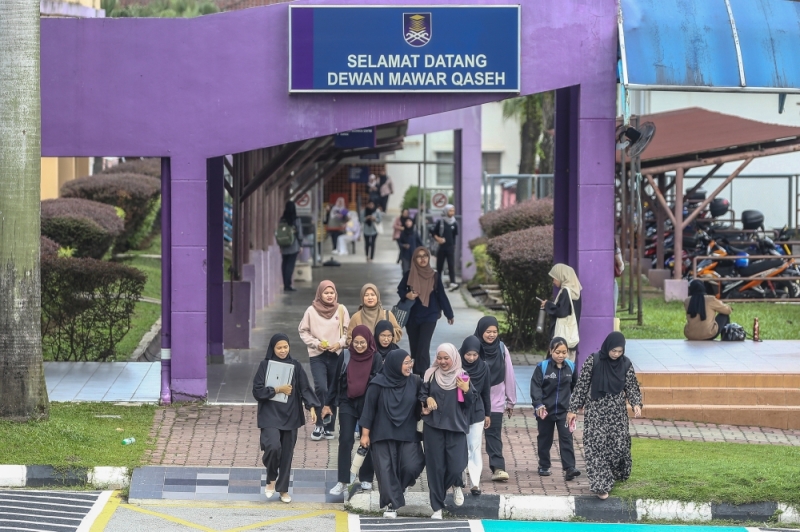WITH more countries and companies taking environmental, social, and governance (ESG) issues more seriously, the Malaysian Government had also announced its own measures to meet challenges of the era.
Under the 12th Malaysia Plan (12MP, 2021-2025), the Government had stressed its commitment to transform Malaysia into a carbon-neutral economy by 2050 with private enterprises also taking the same step.
Recently, FocusM had a chat with Lenovo Malaysia country general manager Varinderjit Singh to discuss ESG and its importance for the future.
Here are excerpts from the interview:
FocusM: Can you explain what is ESG all about and what is Lenovo’s perspective towards its importance?
Varinderjit Singh (VS): ESG is a set of standards for a company’s operations. It determines how far advanced a company is when it comes to sustainability.
These standards enable socially conscious investors to screen for potential investments. Let’s break it down:
- Environmental – The impact of resource consumption of any business on the environment like carbon footprint and wastewater discharge, among other environmental impacting activities;
- Social – How a business interacts with communities where it operates. It also looks at internal policies related to labour, diversity and inclusion policies, among others, and
- Governance – Internal practices and policies that lead to effective decision making and legal compliance. ESG facilitates top-line growth in the long run, attracts talent, reduces costs and forge a sense of trust amongst consumers.
Now, ESG has fundamentally become a guiding principle for many organisations in how they operate their day-to-day businesses and the decisions they make with sustainability taken into consideration.
At Lenovo Malaysia, our commitment to sustainability not only extends to the products we make and how we operate, but also to the people behind our technology and those using it.
What does the Government’s ESG commitment under the 12MP mean to the private sector?

VS: This is interesting because with the Government planning to turn Malaysia carbon neutral by 2050, private sectors will need to pivot the way they operate their businesses and adapt to the changing business landscape.
Therefore, businesses of all shapes and sizes must prioritise ESG for both short-term and long-term benefits, and constantly adapt to changing compliances and demands of different stakeholders.
By embedding ESG elements into their core strategy, businesses will be equipped to be resilient, and this propels long-term competitiveness in several areas such as:
- Adding to business top-line growth – A strong ESG proposition enables businesses to tap into new markets and expand into existing ones through support from the Government and community. Governing authorities are more likely to reward companies with better access, approvals and licenses to resources that afford fresh opportunities for growth;
- Reducing costs – Businesses that switch to more sustainable methods of production tend to be more efficient and reduce costs substantially in the long run by combating rising operating expenses involving raw-materials, water intake and carbon costs; and
- Optimising investment and asset – Businesses can enhance investment returns by allocating capital to more promising and long-term sustainable opportunities such as renewables, waste reduction and scrubbers.
What does the path to a sustainable future looks like to Lenovo? What are some of the organisation’s aspirations for the future?
VS: For us, it starts with having a clear ESG strategy in place, solidifying the strategy and thinking about how we can help businesses in future.
Since 2008, we have eliminated more than 3,100 tons of packaging by weight. We have also processed more than 257,766 tons of computer equipment for recycling and reuse since 2005.
This year, Lenovo ranked at number 78 on the Corporate Knights’ Global 100 List. The list acknowledges Lenovo as one of the 100 listed companies from a pool of 7,395 leading companies globally for incorporating sustainable practices and generating strong financial performance whilst delivering superior value to society.
By 2025, Lenovo aims to enable the recycling and reuse of 363 million kilogrammes of end-of-life products, repair 76% of PC parts returned to the service centre for future use and ensure 84% of PC repairs can be done without having to send the PC to a service centre.
These goals will be used as Lenovo continues to innovate throughout its supply chain and contribute to the circular economy.
Aside from environmental goals, our social impact goals propel our commitment to fostering an inclusive environment.
By 2025, Lenovo has set new representation goals so that women will account for 27% of global executive roles (increasing from 21% last year).
Underrepresented minorities will represent 35% of executive roles in the US (compared to 29% last year).
Following the launch of Lenovo’s Product Diversity Office last year, the company targets to have 75% of its products vetted by inclusive design experts to ensure they work for everyone, regardless of physical attributes or ability. – Dec 25, 2021
Pic credit: Asia School of Business










